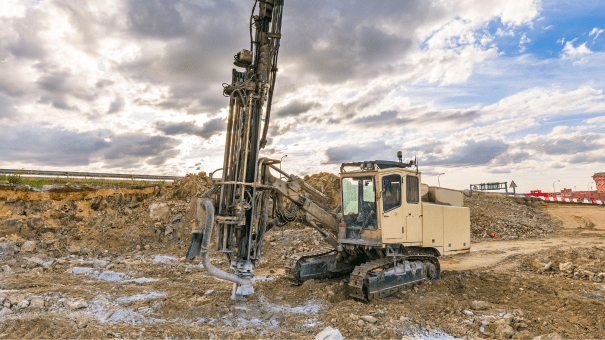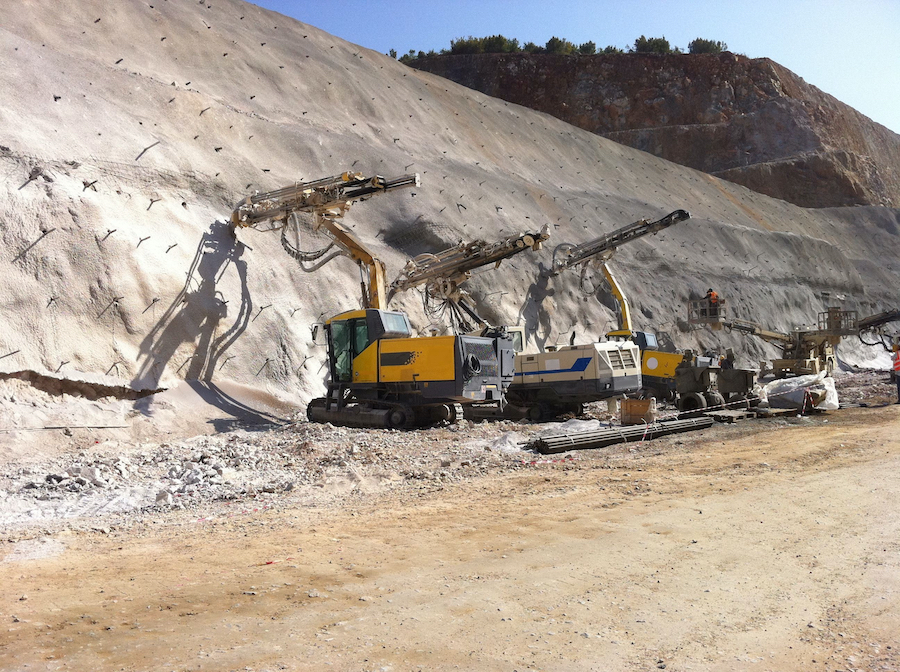A Comprehensive Overview: All About Geotechnical Engineering and Its Applications
The Relevance of Geotechnical Design in Attending To Environmental Difficulties and Enhancing Building And Construction Safety And Security
Geotechnical engineering works as a keystone in the crossway of ecological stewardship and building and construction security, giving vital understandings right into the actions of soil and rock under various problems. This technique not just addresses pushing ecological challenges such as dirt disintegration and groundwater security yet likewise improves the robustness of infrastructure against all-natural threats. By implementing tactical website examinations and customized reduction steps, geotechnical designers play an essential function in guarding both human lives and environmental integrity. Yet, the complexities of these challenges raise essential inquiries about the future instructions of this field and its ramifications for sustainable growth.

Duty of Geotechnical Engineering
Geotechnical engineering plays a vital duty in the style and building and construction of facilities by resolving the habits of soil and rock products under different conditions. This area of engineering is necessary for comprehending the interaction in between frameworks and the ground, which includes identifying the load-bearing ability of dirt, assessing stability, and forecasting prospective negotiation or failure.
Geotechnical engineers are accountable for conducting website investigations, which involve tasting and testing soil and rock to collect information on their chemical and physical buildings. This information is essential for making foundations, retaining walls, and other earth-retaining structures that guarantee safety and security and longevity. Geotechnical design educates the selection of appropriate building approaches and materials, consequently reducing risks linked with soil habits.
Additionally, the assimilation of geotechnical design principles right into city preparation and ecological monitoring is essential for addressing challenges such as ground contamination and groundwater administration. By understanding geotechnical aspects, engineers can create lasting services that enhance the strength of framework versus all-natural hazards, while likewise promoting ecological stewardship. Ultimately, the duty of geotechnical design is vital for achieving secure, long lasting, and ecologically conscious building and construction techniques.
Soil Erosion Mitigation
Soil erosion postures a considerable hazard to both ecological stability and facilities integrity, affecting about 24 billion lots of fertile soil lost annually worldwide. This sensation is aggravated by aspects such as logging, urbanization, and poor agricultural methods. Geotechnical engineering plays a crucial duty in establishing efficient dirt disintegration reduction approaches that secure both the atmosphere and building projects.
One technique requires the implementation of disintegration control approaches such as plant life growing, which supports soil through root systems. In addition, the construction of preserving walls and balconies can properly decrease surface runoff and secure vulnerable locations from disintegration. Proper drain layout is additionally vital; it decreases water accumulation and guides excess drainage away from essential frameworks.
Furthermore, geotechnical designers employ soil stablizing techniques, such as the application of geotextiles and biodegradable floor coverings, to improve soil cohesion and avoid degradation - all about geotechnical engineering. Routine tracking and assessment of erosion-prone sites enable timely treatments, making certain long-term sustainability. By incorporating these methods, geotechnical engineering not just minimizes the effects of soil disintegration yet additionally adds to the resilience of infrastructure against environmental obstacles, eventually cultivating a safer and more lasting constructed environment
Groundwater Security Strategies
Groundwater acts as a vital source for alcohol consumption water, farming, and industrial procedures, making its defense necessary for environmental sustainability and public wellness. Efficient groundwater security approaches are essential in minimizing contamination threats and making certain the longevity of this source.

Regular monitoring of groundwater top quality is likewise essential, enabling early discovery of contamination sources and helping with timely remediation initiatives. Utilizing advanced modern technologies, such as geophysical studies and remote picking up, aids in determining prospective risks to groundwater books.
Furthermore, public education and learning and stakeholder engagement are important, fostering neighborhood support for groundwater protection initiatives. geotechnical engineer description. By integrating regulative procedures, technical advancements, and community involvement, we can create an extensive structure that safeguards groundwater sources while promoting lasting development and building and construction practices
Landslide Risk Monitoring
Landslides position substantial threats to both human safety and security and framework, making reliable threat administration methods vital. Geotechnical engineering plays a crucial role in determining, analyzing, and mitigating landslide risks. A thorough understanding of slope stability, dirt technicians, and hydrology is important for establishing efficient danger monitoring plans.
The very first step in landslide threat administration includes thorough site investigations, that include geological mapping and More about the author soil testing. These examinations aid engineers review the capacity for landslides by recognizing crucial elements such as incline angles, soil structure, and water material. Using advanced technologies such as remote sensing and geophysical studies can enhance the accuracy of these evaluations.
When risks are recognized, appropriate reduction measures can be applied. These may consist of design options such as keeping wall surfaces, drainage systems, and incline stablizing methods. Keeping an eye on systems need to be established to discover indicators of ground activity and changes in water levels, permitting for aggressive interventions.

Enhancing Building Safety And Security
Building websites typically provide a myriad of threats that can jeopardize employee security and project integrity. Geotechnical design plays an important role in improving building security by providing essential understandings right into subsurface conditions. With thorough soil and rock analysis, geotechnical engineers can identify possible risks, such as soil instability, groundwater problems, and seismic susceptabilities, which may compromise the safety and security of construction tasks.
Implementing geotechnical remedies, such as proper structure style and the use of preserving frameworks, alleviates these risks dramatically. These services not only make sure the security of the frameworks being built yet likewise produce a much safer working setting for construction employees.
Furthermore, fostering a society of safety with training and adherence to developed safety protocols additionally boosts building site safety and security. By incorporating geotechnical knowledge right into the planning and implementation stages, building and construction jobs can accomplish greater safety and security criteria, eventually safeguarding employees and guaranteeing successful task completion.
Verdict
In verdict, geotechnical engineering serves as a critical technique in advertising and dealing with ecological difficulties construction safety and security. With reliable dirt view website disintegration reduction, groundwater protection techniques, and landslide danger administration, geotechnical engineers contribute to the development of resilient infrastructure.
Geotechnical design offers as a cornerstone in the junction of ecological stewardship and construction safety and security, supplying vital understandings right into the habits of soil and rock under various problems. Geotechnical engineering educates the option of ideal building approaches and materials, consequently reducing risks connected with soil actions.
Geotechnical engineering plays a critical role in developing reliable dirt disintegration mitigation techniques that guard both the atmosphere and building and construction projects.
In addition, geotechnical engineers use investigate this site soil stablizing strategies, such as the application of geotextiles and eco-friendly mats, to improve dirt cohesion and stop destruction. Through detailed soil and rock evaluation, geotechnical designers can identify prospective threats, such as dirt instability, groundwater issues, and seismic susceptabilities, which may endanger the security of building and construction activities.